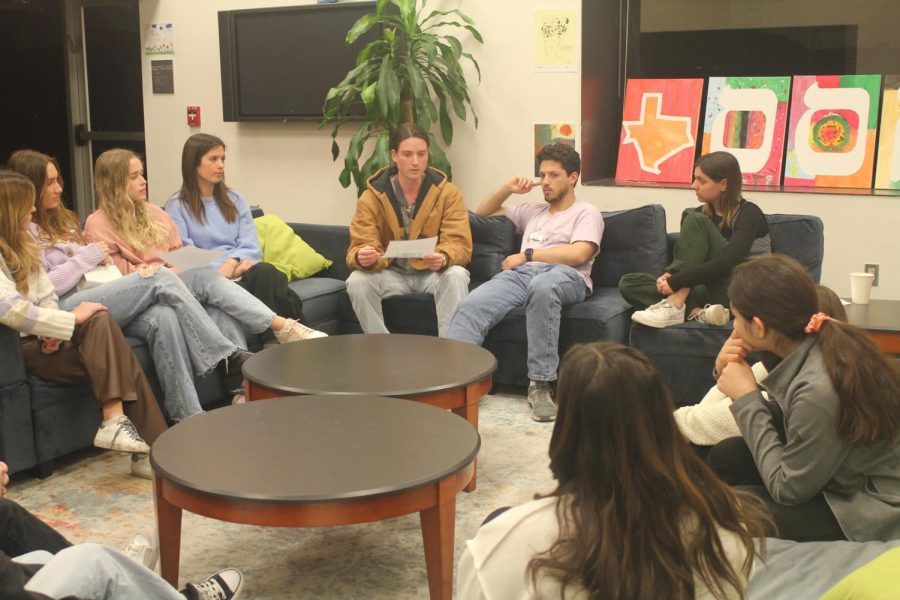Hillel recognizes Holocaust Remembrance Day, students share fears, resilience
January 31, 2023
When an armed hostage situation unfolded at a Colleyville synagogue last year, Samantha Ratner feared for her family and Jewish community. For the studio art sophomore, the standoff struck a chord beyond the headlines and shook her at the core of her identity. Ratner said her father leads a nearby synagogue in Fort Worth, and after experiencing antisemitism herself in high school, she wondered what would have happened if the perpetrator targeted her house of worship instead.
“(My dad) could have been at services when this happened,” said Ratner, who serves as vice president of Hillel marketing and communications. “That shouldn’t happen. Someone’s trying to practice their religion, and it can be really scary, especially when it comes closer and closer to your town.”
These everyday worries make Jan. 27, International Holocaust Remembrance Day, all the more important for Ratner and other students at Texas Hillel, a West Campus organization offering a home away from home for Jewish students. The group sat down on Friday to honor the day of remembrance as part of an ongoing “Unplugged” discussion series. Students said they struggle daily with choosing to proudly wear their Star of David necklaces or tuck them inside their shirts in fear.
“(Antisemitism) dumps into my head whenever I put on my necklace, which has a Torah line engraved on the back. In high school, I couldn’t wear it whenever I was in a Bible Belt area because people would ostracize me,” Paisley Porter, a communication and leadership freshman, said. “Now, I think about it every day and I’m like, ‘I can wear Jewish jewelry, and I don’t have to worry about being proud of who I am.’”
Gathered together before Shabbat services — which celebrate the weekly Sabbath, the day of rest — 15 students reflected on the mass genocide and importance of their continued fight and resilience against rising antisemitism. According to 2021 FBI statistics, anti-Jewish incidents made up 31.9% of religious hate crimes, the most of any religious group in the U.S.
No student remained silent as they discussed fear of revealing their Judaistic beliefs in their hometowns, losing friends over prejudice and media bias. Andrew Cabrera said his being Jewish comes with feelings of alienation.
“We’ve always been a scattered people and group that doesn’t belong,” Cabrera, a communications studies freshman, said. “We’re always the outsiders, and as long as we’re the outsiders, we’re going to be pointed to when things go wrong.”
Ty Langley, Hillel’s spring social justice fellow, organized the discussion and said she hopes it offered a place of healing for attendees.
“Even though it feels like (the Holocaust) was thousands of years ago, it wasn’t. It still touches the lives of many students and families… It’s past generational trauma,” Langley said. “Feeling like you don’t have to carry the knowledge of this tragedy alone, and that you can shoulder it with members of your community is really valuable.”
Langley said she hopes others show more understanding towards Jewish students, who comprise 7% of UT’s undergraduate population.
“No matter how hard most Jewish people try to spread the word (about antisemitism), nobody ever hears us,” Porter said. “People should know that whenever they’re with somebody who is Jewish, be open-minded and understand where they’re coming from, because we are people too.”
Counting her blessings but remaining vigilant, Ratner said the post-Holocaust battle cry, “never again,” points towards ensuring another genocide never happens again.
“It’s so important to remember that this was only 80 years ago, but even in Jewish history, there has been a repeated cycle of antisemitism,” Ratner said. “The saying, ‘never again’ is all about trying to break that cycle.”












